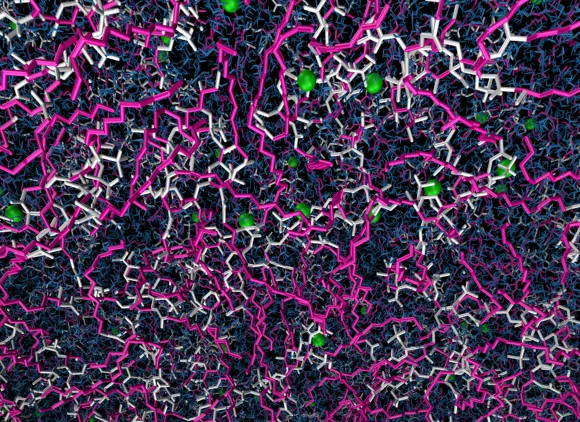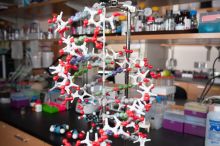The U.S. National Science Foundation Centers for Chemical Innovation (NSF CCI) program supports research centers focused on major, long-term challenges in fundamental chemistry.
Managed by the NSF Division of Chemistry, the NSF CCI program currently supports eight major, multi-institutional research centers — known as Phase II centers — and several smaller Phase I incubator centers.
By partnering with industry, national laboratories and international organizations nationwide, these research centers can respond rapidly to emerging research opportunities and national priorities, producing transformative research and ground-breaking innovations. These collaborative centers also serve as a unique training ground for students and early-career researchers.
Phase II Centers
NSF Center for Sustainable Polymers (NSF CSP)
Led by the University of Minnesota, the mission of NSF CSP is to transform how plastics are made, unmade and remade. The center aims to create polymers derived from renewable resources that can be used for a wide range of applications that support future economic development, energy efficiency and environmental sustainability in the emergent area of biobased products.
NSF Center for Sustainable Nanotechnology (NSF CSN)
Led by the University of Wisconsin-Madison, NSF CSN conducts research on nanoparticles in water and biological systems. The center is making and measuring new functional and useful nanomaterials with increased sustainability and reduced negative biological impact.
NSF Center for Genetically Encoded Materials (NSF C-GEM)
Led by the University of California, Berkeley, NSF C-GEM develops new biologically-inspired methods to precisely build and tailor polymers. The center aims to enable new applications based on understanding how to control molecules within polymers, such as information storage, textiles and fabrics, nano-sensors, drug discovery and delivery.
NSF Center for Synthetic Organic Electrochemistry (NSF CSOE)
Led by the University of Utah, NSF CSOE aims to enable broader use of synthetic organic electrochemistry by inventing green, safe and economic new reactions. The center is merging synthetic organic chemistry and electrochemistry to develop safe and sustainable chemical production methods.
NSF Center for the Chemistry of Molecularly Optimized Networks (NSF MONET)
Led by Duke University, NSF MONET seeks to uncover the principles underlying the chemical structure and properties of polymer networks and materials based on those networks, like automobile tires, biomedical implants and structural materials. The center's work can lead to more durable materials and products that last longer and reduce waste.
NSF Center for Computer Assisted Synthesis (NSF C-CAS)
Led by the University of Notre Dame, NSF C-CAS is developing new machine learning methods to enable the discovery of novel reactions and yield new scientific insights. The work has broad potential impacts across synthetic chemistry and the applications it enables such as medicine, materials science and energy research.
NSF Center for the Mechanical Control of Chemistry (NSF CMCC)
Led by Texas A&M University, NSF CMCC is exploring how the mechanical application of force can enable new advances in chemistry. The center aims to make mechanical chemistry better understood and predictable with potential applications that include making industrial processes cheaper and more environmentally friendly.
Learn more about CCI
Visit the NSF Centers for Chemical Innovation website to explore the phase II centers and find postdoctoral research fellowships and undergraduate opportunities.



